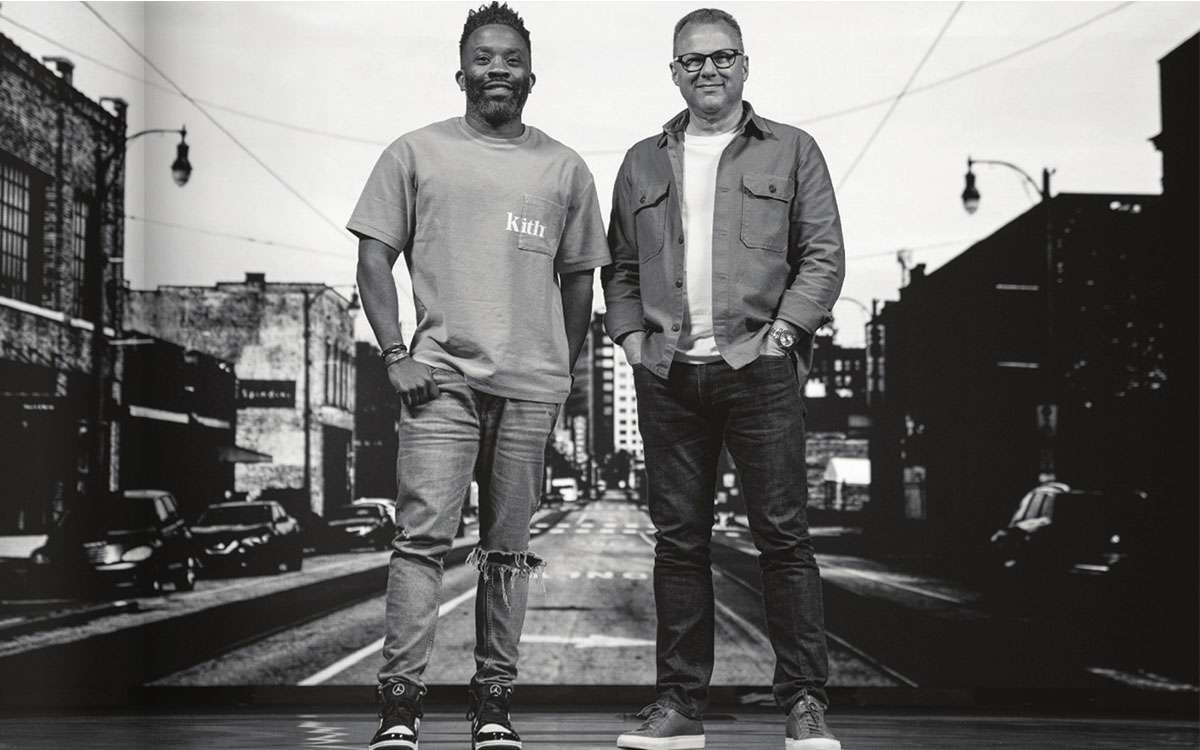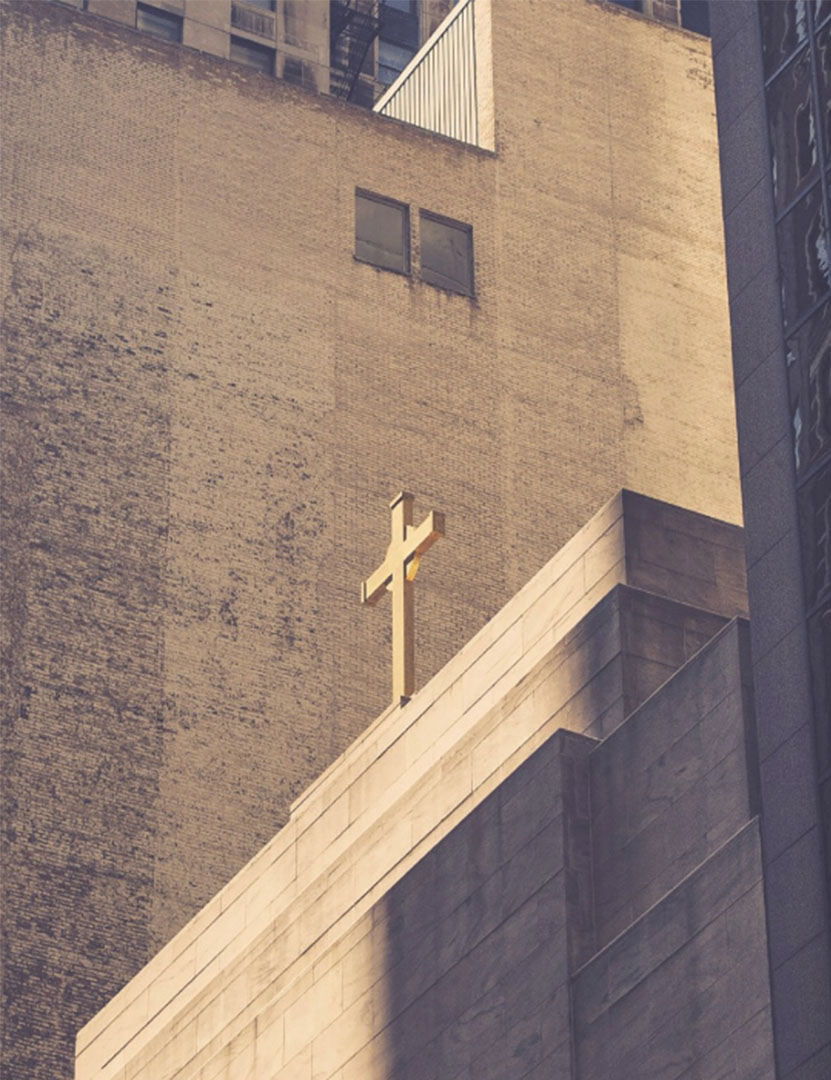
The year 2020 marked history with a massive upheaval of our day-to-day lives, as the murders of Ahmaud Arbery and George Floyd sparked global outrage, and society felt the far-reaching impact of the global pandemic caused by COVID-19. In nightmarish proportions, we watched how politics divided us and witnessed how the birth of cancel culture eliminated many opportunities to have meaningful dialogue about God, race, community engagement and more.
While we’ve made some progress since then, we are still alarmingly close to the tensions that were at fever pitch during that time period. Though the constant barrage of hashtags and headlines around racial conflict the last two years has receded to a calmer way of living, we’d be foolish to think that the tentacles that strangled much of our joy just three years ago have fully loosened their grip.
As church leaders we struggled to keep our congregations together during that time, as we tried to provide care for those dealing with grief, a variety of losses and mental health strains brought on by the pandemic.

Before the COVID-19 pandemic, the majority of church attendance happened exclusively in person. Spiritual leaders had to become agile in figuring out how to connect with a congregation digitally. This was a first for many lead pastors and pastoral teams. Though we have now returned to in-person gatherings, we still minister in a hybrid church context that presents new challenges almost weekly. Many churches (not all) have now returned to between 55% and 80% range of pre-pandemic in-person church attendance; few are above that mark.
The question many of us who lead churches should ask is, “What does the future demography of the church look like?” People are back in seats, but who exactly has come back? How do we posture our churches to be welcoming to people reeling from the pain unearthed in 2020? How do we help people who may be quietly nursing biases and unloving attitudes toward their spiritual siblings? How do we minister to people with proverbial PTSD from the trauma of a few years ago?
When the global conversation on race emerged fresh and new, we saw a binary approach to talking to each other in every public arena. Church, academia, politics and entertainment were some of the contexts in which we walked on eggshells trying to address issues without getting cancelled. You were either on the left or the right, conservative or liberal, too woke or not woke enough, silent or way too vocal.

Fingers that once were agents for distributing hospitality became weapons that triggered hurtful words in posts and comment sections on social media. We observed ministry leaders and congregants unable to connect, filled with more fear than faith and unsure how to effectively engage our differences.
Just before the world spiraled into this disunited way of being, we (John and Wayne) were talking about race and spirituality as two leaders of diverse congregations. After having many conversations on these subjects, we came up with a joint sermon series idea to lead our churches through called Black Fists, White Knuckles: An Open-Handed Conversation About Race, which we recorded in the early part of the fall of 2020.
We had no idea that the series would have such a prophetic impact, and at that time we had not decided that we would merge Authentic Church (the congregation that Wayne and Claudene Francis founded in New York) under the ministry of The Life Church (founded by John and Leslie Siebeling in Memphis, Tennessee). But this series helped us capture a framework that grounded that series andled us to co-author God and Race: A Guide for Moving Beyond Black Fists and White Knuckles. In our initial series we laid out a framework to address what we saw:
Racism is a problem. This may sound like stating the obvious. But not for everyone! We think some people think it was a problem and that it’s not a problem anymore. But it is still a problem.
The gospel is the solution. The Bible says in Romans 1:16, “For I am not ashamed of the gospel, because it is the power of God that brings salvation to everyone who believes.” The power of God can change someone’s heart. And as we give our hearts to God, He transforms and reconciles us to Himself and then He helps us reconcile ourselves to one another! The gospel doesn’t bring shame or guilt—it sets us free. The idea that white people should feel guilty or ashamed because of their skin color alone is not the gospel, or that Black people should be subjected to hatred because of their skin color is not the gospel either. The gospel sets us free.
It’s more than just a spiritual problem. It’s a historical problem. It’s a practical problem. This means we can’t over-spiritualize it with prayer alone. We need to integrate practical tools to bring healing to the divide.
It’s complicated. This means we can’t be simplistic about the problem. We’re not naive in thinking one message series, event, book or prayer service is going to erase years of injustice. But we can take one step at a time and have some courageous, ongoing conversations.
White people must seek to understand and acknowledge the sin of slavery and mistreatment of Black people. Slavery and segregation have resulted in a justifiable lack of trust and anger in Black people. This is part of our history as a country, and we can’t turn away from it or dismiss it. We have to remember and talk about it. Some white people might say, “Well, I wasn’t there,” or “I didn’t do it.” But that doesn’t take away the generational impact and the work that still needs to be done in our society and in the hearts and minds of people.
Black people in turn have to forgive white people of previous and present injustices, while also not harboring hatred and racism toward white people. We can’t allow media and extreme groups to dictate how we feel or how we interact with white people. Some people would say that Black people can’t be racist, but that’s simply not true. All people can harbor hatred toward another based on skin color alone.
Unless we make a solid, intentional choice to repent, understand, reach and love one another, we will remain divided. The framework of our current context is one that we didn’t create. However, it’s our reality, and we have a responsibility to do our part
to bring about change. Even if we aren’t to blame for where we find ourselves, we can make a difference for our generation and generations to come.
WHERE DO WE GO FROM HERE?
It’s easy for us to get amnesia and quickly return to a growth strategy that could avoid continuing the tough work of ensuring that our churches are embracing a biblical model for diversity. Growth is still a good goal if it’s not idolatrous, but integration of people from diverse ethnic backgrounds is an even better goal for growth. Here are some tips to help:
Listen longer. What are people still feeling and thinking about race in your context? I (Wayne) had a group of diverse young people fly to New York to meet with me to talk about our book, God and Race. This group included Latino, Asian, Black, white and Indian
kids from Arizona still grappling with the aftereffects of 2020 and a church split they experienced.
One Asian girl cried as she spoke. One Black girl talked about what it feels like to continue to integrate into a white church context and losing Black friends. One Latino young man wrestled with why his race issues don’t get as much attention as the rift between Blacks and whites in America. They were all rooted in a predominately homogenous church and came with their white pastor. To me it was a beautiful testament to listening longer.
We are three years removed from the fiery conflicts that impacted our cities, and yet there is still a group of people who want to talk but are even more eager to listen to one another. What’s amazing is that they are staying planted in a local church that still has more work to do to reflect the community and God’s intention for the body of Christ.
“My dear brothers and sisters, take note of this: Everyone should be quick to listen, slow to speak and slow to become angry, because human anger does not produce the righteousness that God desires” (James 1:19-20).
The slower we are to speak, the longer we have listened.
Recurring conversations. Immediately after 9/11 pews were filled, but then the conversation receded. Likewise, though racial reconciliation may begin, repair takes time and intentionality. When we learn to have actual, mature conversations with people of other ethnicities, our perspectives and horizons are expanded.
Look, we get it, maybe you feel relieved not having to talk about race for a while. However, it has been not having the right conversations that has led us to wrong outcomes. My (John) years of leadership in Memphis have predominately focused on creating a culture for Black and white people to bond. When we started, our church was 100% white in a city that was more than 60% Black.
We wanted to be a diverse church; the only thing missing was all the diversity! But instead of being discouraged by our reality, we were encouraged by the potential of what our church could be, and to that end we’ve done something that has helped us build a diverse church over 26 years: We have recurring conversations about race.
Our city, Memphis, Tennessee, has a long history with racial strife. It was one of the hubs of the civil rights movement and the place where Dr. King was assassinated. I know firsthand how difficult talking recurrently about race can be. Conversations about race (particularly as it relates to white-Black tension) feel so scary to initiate and difficult to sustain because the Black and white tension is a result of centuries of pain and power struggles.
However, conversations that are recurring work best when done with open hearts, open minds and open hands. We know racism is not solely a Black and white problem, so whatever ethnicity you are, whatever hardships you’ve experienced, we hope that talking about racism doesn’t always have to be explosive but expansive. Interestingly enough, when we have tools to talk productively about these tense topics, it becomes more comfortable doing so.
Look at value statements. Is diversity a statement you have in printed vinyl letters
on a wall in your church, but not in practice? The house of God is supposed to be a house that looks like heaven. It’s one of the reasons we codified this statement into our organizational values for The Life Church: “We’re building a house that looks like heaven.” Building is the operative word because it takes continual work, and until it can be said of every congregation around the world, we all have work to do.
We believe this starts with taking a look at organizational value statements to ensure that our churches reflect what we’ll see in heaven. All organizations have metrics and models that they look at to determine their health, and diversity should be embedded into the DNA of a church, even if they reside in an ethnically homogeneous community. What we mean is that no church should have a non-welcoming culture to people of diverse backgrounds, regardless of the predominant racial makeup of the community they are in.
The words we say, the things we post, the forgiveness we extend, the people we invite into our homes and the churches we build should reflect a house that looks like heaven. How does that happen? By making diversity a personal value. Yes, it starts with you. Take an honest look at the role you play in your local church. Are you helping the church move forward toward diversity? If not, it’s time to take your first step because it’s going to take all of us coming together, unified under a vision of building a house that looks like heaven.
Change strategy. Decrease dependence solely on weekend services. Now is the time to build a bond of tighter spiritual proximity by providing life groups that are conversation hubs commissioned to serve communities through outreach, service and relationship-building.
Sadly, recent times taught us that there is a wave of Christians who know more about who is running in the election primaries than they know about how to make God’s kingdom and His heart for diversity primary. It’s not that this knowledge is wrong; it’s just out of order. What identifies a follower of Jesus is who and what that person seeks first. Jesus said it’s when we seek first His kingdom that all other things will be added to us; maybe our lack of seeking in this way is what has kept us divided.
Build a staffing culture focused on diversity. Staffing structures and areas of specialization will need to change and evolve; many churches are still staffed for the year 2000. How do we fix that? We believe that we should constantly be evaluating the diversity on our staffs so that our leadership reflects the makeup of our congregations. Maybe you minister in a predominately white, Asian, Black or Latino context, and it seems impossible to get any diversity on your team. Jesus instructed us to do something we think is vital to seeing diversity in our churches: We should pray that the Lord of the harvest will send forth laborers. We believe that, in time, people with a heart to see the diversity of heaven here on earth will experience it tangibly.
Don’t stop speaking. Do a series again. Host a conversation again. Don’t be afraid to press in. We like to refer to what we call “Ancient Twitter”—the book of Proverbs—for great counsel on this matter:
“Speak up for those who cannot speak for themselves, for the rights of all who are destitute. Speak up and judge fairly; defend the rights of the poor and needy” (Proverbs 31:8-9).
“A word spoken at the right time is like gold apples in silver settings” (Proverbs 25:11, ESV).
You don’t have to spark a revolution every time you open your mouth (though this is the leaning for many of us Protestants, due to our religious heritage) or some pithy social media campaign to keep the conversation going, you just have to commit to seeing unity as an imperative, not as a luxury that can’t be obtained.
Homogeneity is the quality or state of being all the same. Our prayer is that we seek unity. Diversity and unity are pivotal pieces of God’s plan of having people come to know Christ. If you still have a pulse, you have a responsibility to be the answer and the antidote to help push forward toward the future God designed—a diverse future of unity and reconciliation.
—
This article was featured in the Spring 2023 AVAIL Journal.

JOHN SIEBELING is the founding and senior pastor of The Life Church based in Memphis, Tennessee, a thriving, diverse body of believers committed to serving people, developing leaders and impacting generations. John serves as a member of the ARC Lead Team and is the author of several books, including Fresh Start with God and Worry Free Finances. He and his wife, Leslie, live in Memphis, Tennessee, and serve together with their two adult children, Anna and Mark.
WAYNE FRANCIS leads the New York City location of The Life Church and was the founder and lead pastor of the former Authentic Church, which merged with The Life Church in early 2020. Wayne and his wife, Claudene, have been married for 20 years and have two beautiful teenage daughters, Haleigh and Ryleigh.


